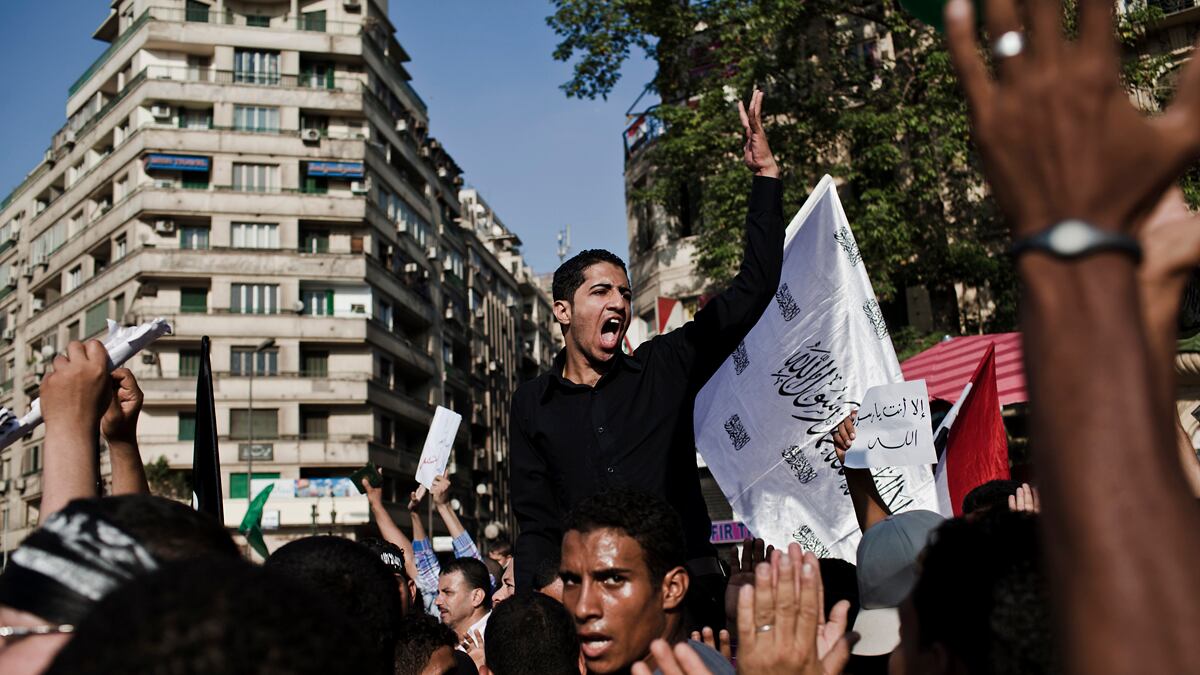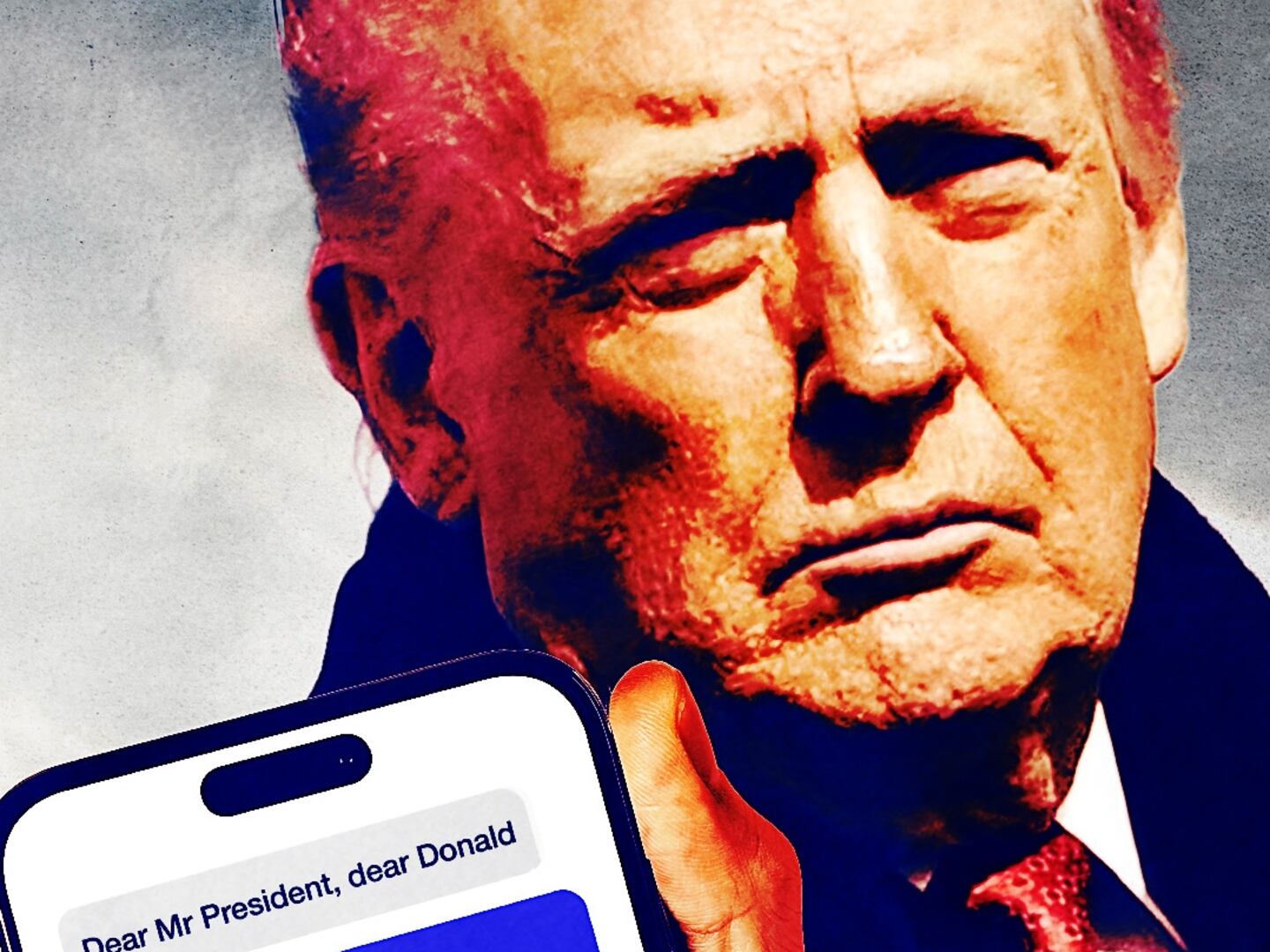On Thursday night, as demonstrators clashed with police in central Cairo over the anti-Islam amateur film that has sparked outrage across the Muslim world, Alber Saber was hiding at home. An angry crowd chanting Allahu Akbar was massed outside his door. Saber, a 27-year-old activist, had a long history of speaking out against Islamists in Egypt, and with religious passions running high, he had become the target for this angry mob. From inside the apartment, he could hear people calling him an infidel and debating whether to kill him on the spot.

“Why are we standing down here? Let’s go upstairs and get him,” his mother, Cariman Ghaly, remembers hearing as she pressed her back against the front door to keep the crowd from breaking through it.
The crowd accused Saber of posting a Facebook link to the controversial video, along with other offenses against Islam. Ghaly called the police. When they arrived, however, they arrested Saber. A dramatic YouTube video of the scene outside shows the crowd erupting as Saber is hustled to a waiting van, cursing and grabbing at him as an officer tries to keep them at bay.
When Saber arrived at the police station, he was charged under an infrequently used law that prohibits insulting religion, according to his lawyer, Ahmed Ezzat, who spent Friday with Saber at the local police station. The allegations, Ezzat says, include sharing the Facebook link and, months earlier, posting a self-made video commentary titled “Who is the spokesman for Allah?”
Saber is from a family of Coptic Christians, which make up an estimated 10 percent of the Egyptian population. Many have been on edge during the recent unrest, worried that tensions with Muslims may be inflamed in the outcry over the film. The film’s creator, as well as some of its main backers, are reportedly Copts living in the United States—as some demonstrators in Cairo this week were quick to point out.
Saber, however, is an outspoken atheist, according to his lawyer and friends. It’s a subject on which he has engaged often on the web, where he has an active presence on social media and his personal blog. The recent flood of animosity against Saber, Ezzat says, was due less to tensions between Christians and Muslims than to Saber’s history of speaking his mind—combined with the recent frenzy over the anti-Islam film. His opponents pounced when he posted the Facebook link. “Alber is an atheist. He’s against Islam, Christianity—just all religions. In all the videos he made, he addresses all religions. This is something that creates problems with all people,” Ezzat says.
In the “Who is the spokesman for Allah?” video, one of many on religion that Saber has made, he points out that every faith claims sole ownership of the truth. In remarks that may have seemed relevant to those who seized on the video recently, he also argues that if there were a God, he would protect his religion himself, instead of having others defend it.
Ezzat is the legal director for the Cairo-based Association for Freedom of Thought and Expression. He and Ghaly allege that upon arrival at the local police station, a young officer threw Saber into a cell with other detained men and announced that he had insulted the Prophet Muhammad, as the film that has caused the international outcry unabashedly does. They also say that the officer in question is a Christian, and that Saber was beaten inside the cell.
Citing an anonymous security official, the Associated Press reported on Friday that Saber had been arrested and detained for 15 days pending an investigation.
Saber lives in el-Marg, a poor and crowded neighborhood in eastern Cairo. A number of Christians live there, but Muslims are in the majority. Ghaly, who works in marketing, says she has long felt wary of her neighbors. Hailing from a Christian family, Ezzat says, may have made Saber more vulnerable. “He belongs to a Christian family, which makes this a bigger problem, since Christians in Egypt are a minority,” Ezzat says. “They’re weak, and it’s easier to incite against them.”
The security situation in Cairo, meanwhile, has been shaky ever since Egypt’s revolution toppled Hosni Mubarak’s authoritarian regime.
Saber played an active role in the revolution—“We never left Tahrir Square,” his mother says. He also has a long history of opposition to the Islamists that have come to dominate Egypt’s politics after winning the presidency and much of the Parliament through the newly empowered ballot box. The Muslim Brotherhood’s Freedom and Justice Party holds the presidency and the bulk of the legislative seats, while hardline Salafists are seen as a potent political force. Saber has been increasingly vocal in his opposition to both since they came to power. “He had a history with all these groups,” one friend, Amir Taky, says.
One recent post on Saber’s Facebook page shows him standing in Tahrir Square with a sign that reads, “We are the revolution, without the Muslim Brotherhood.” Another shows a photo of graffiti that asks the question: “What have you seen from Allah that makes you hate his Shariah?”
“I’ve seen you, and I’ve seen your actions,” Saber wrote in reply.
Saber’s anti-Islamism, and his atheism, brought him a number of opponents online and off. “Alber has always had problems with the Salafists in the area he lives in,” says Malek Adly, a Cairo-based human-rights lawyer who is following the case, adding that some religious groups had been waging an online campaign against Saber. “They were waiting for something to go wrong so they could clamp down on him.”
Heated language can be found in response to many of Saber’s Facebook posts. Under one—a photograph of Saber’s door after a break-in attempt—someone wrote: “Fuck you. Know your limits with religion.”
During the recent protests in Cairo, what started as a peaceful demonstration led by Salafists outside the American Embassy turned into an international incident in which young men climbed the embassy’s walls and replaced the American flag with an Islamic one. For the next four nights, demonstrators clashed violently with police near the site. They were mainly young, and some wore clothing that identified them as soccer hooligans for the one of the two main Cairo clubs.
Many Islamists denounced the agitators, saying they weren’t aligned with the cause. But the young men at the clashes said they were defending the Prophet, and were seemingly incited by the frenzy surrounding the film.
“Now everyone is speaking in the name of religion. Even those who don’t understand anything about religion,” Taky says. “Religion is everything.”
Ghaly said many of the young men in the crowd amassed outside her home were far from devout Muslims. “Most of them were druggies who don’t even go to the mosque,” she says. “That’s what really hurt.”
She recounted a harrowing experience of pressing her back against the door Thursday night as men from the mob alternated between kicking it and trying to coax their way inside.
After Saber’s arrest, Ghaly left the neighborhood, and she doesn’t expect to return. “The talk of the area is of Alber and of killing Alber,” she said. “I cannot go back.”
With Hassan el-Naggar in Cairo.






